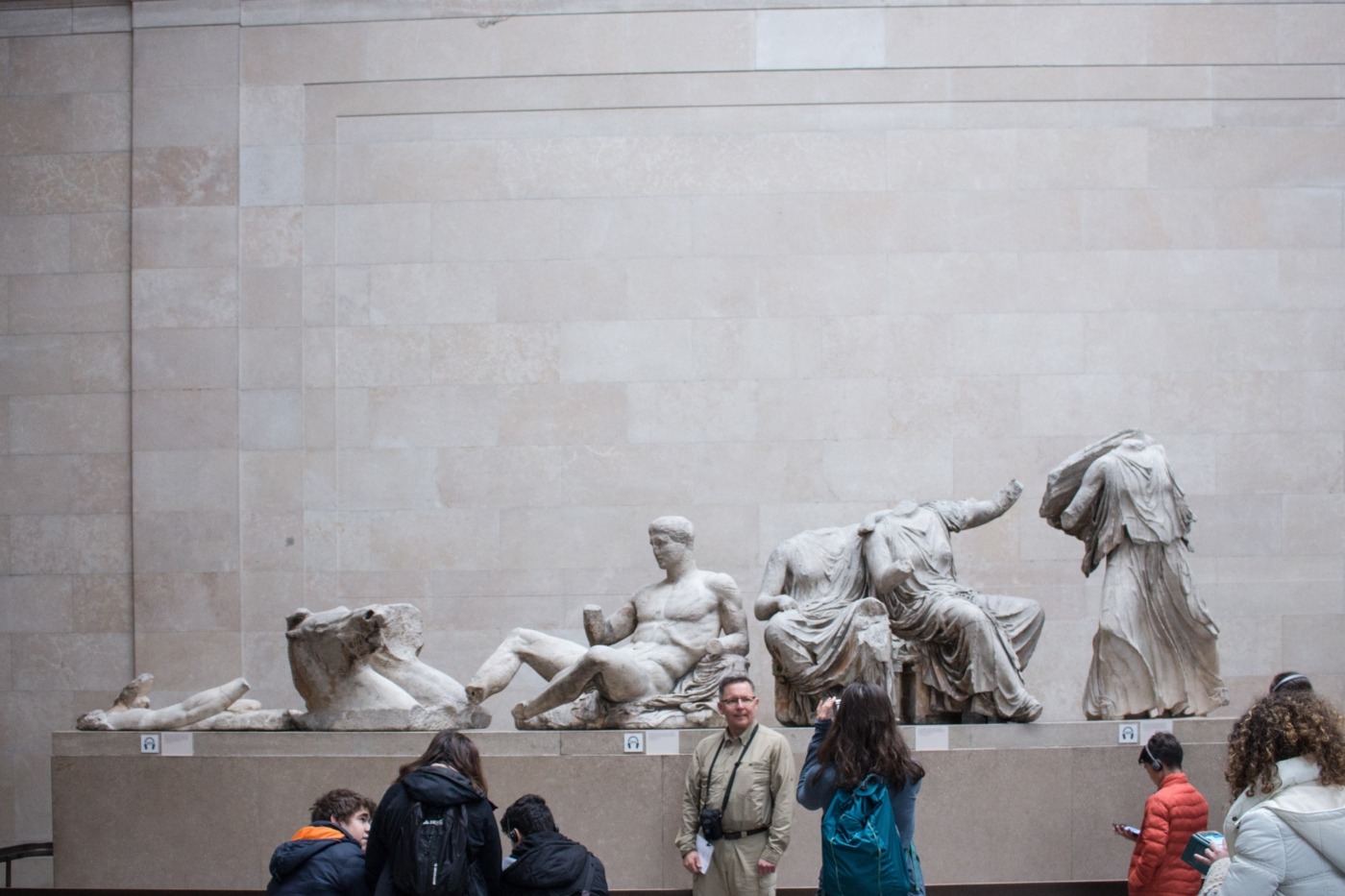Greece won’t get the Parthenon Marbles any time soon
George Clooney has again voiced support for returning the Elgin, or Parthenon Marbles, to Greece. This is not the first time and likely not the last. According to the Greek newspaper Ta Nea, Clooney has recently told the chair of the British Committee for the Reunification of the Parthenon Marbles, Janet Suzman, that “the Parthenon Sculptures must be returned to their original owner”. Suzman confirmed this to The Art Newspaper, reigniting the two-century long debate over the marbles.
Clooney has not limited himself to the marbles though, as earlier this year he wrote to Suzman, saying: “There are a lot of historical artefacts that should be returned to their original owners, but none more important than the Parthenon Marbles.” He first spoke on the marbles in 2014 when promoting the (admittedly great) film The Monuments Men. However, one must question his sincerity and motivations, as it may just be his chosen topic to grandstand on as his wife, human rights lawyer Amal Clooney, was actually advising Greece on the return of the marbles.
Clooney wrote: “There are a lot of historical artefacts that should be returned to their original owners, but none more important than the Parthenon Marbles.”
Boris Johnson also waded in at the time as his typical old self, with colourful language and jingoistic historical references abound. He said Clooney was “advocating nothing less than the Hitlerian agenda for London’s cultural treasures”. Frankly, his comments, while great for tabloid fodder, did not help the cause much. The sentiment was there but he could have done fellow supporters a favour and kept his rhetorical cool.
The Elgin Marbles are fifth-century statues, housed since 1816 in the British Museum. The name comes from Thomas Bruce, 7th Earl of Elgin, a Scottish nobleman and then Ottoman ambassador, who removed and relocated them. The name is contentious as others prefer the Parthenon Marbles.
From 1801 to 1812 Elgin removed half of the surviving sculptures from the Parthenon, among other statues, and transported them to Britain, claiming to have received an official decree from the Sublime Porte, the Ottoman government. This has not shown up in any archives but the Ottomans were known for also making unofficial deals at times.
This sparked massive debate in Britain, with Lord Byron calling it looting and vandalism. There was a parliamentary debate, but Elgin was exonerated with the British Museum buying them in 1816, where they have stayed since.
Regarding any “return”, we run into legal, historical, and moral quandaries. Firstly, the British Museum bought them from Elgin, so they have an obligation there. Secondly, Greece was not a country at the time, and hadn’t been for millennia. Thirdly, the question over Elgin’s legal document has been debated for two centuries with no end. Greece was not a country in the early 1800s: the Ottomans had ruled the land from the mid-1400s until the Greek War of Independence of 1821-29, so would you have to return them to the Ottomans?
Regarding any “return”, we run into legal, historical, and moral quandaries – the British Museum bought them from Elgin, so they have an obligation there.
Well, no. But prior to the Ottomans you had the Byzantines, and the Romans. You get stuck in a historical rabbit hole trying to find Greece among these empires. Regardless of the document question, it does feel odd to suggest someone can spend a decade chiselling out and shipping away so much without some form of agreement, especially as you required a special permit to even enter the site under the Ottomans.
To return the marbles, you face a historical mess. But more than this, you have the moral question of whether we should even consider this at all. As in, what reason is there for this continued debate? A common British pushback is that they proved immensely popular from the get-go and have remained a cultural icon for two centuries.
But the big reason I would say no to any “return” is that I am wary of the domino effect. This is not a slippery-slope fallacy as the Elgin Marbles are the lynchpin of restitution debates. The calls would be endless, and slowly undermine the modern concept of museums and, as seen with the Elgin Marbles, the paper trails are never clear-cut on the claimants’ case.
A common British pushback is that they proved immensely popular from the get-go and have remained a cultural icon for two centuries.
They are a source of nationalistic pride for both Greece and Britain and that is why they won’t move. Boris Johnson waded in again, more professionally this time, to tell Ta Nea: “they were acquired legally by Lord Elgin, in line with the laws that were in force at that time”, so don’t expect this new round of interest due to Greece’s 200th anniversary independence celebrations to settle this debate any time soon.

Comments